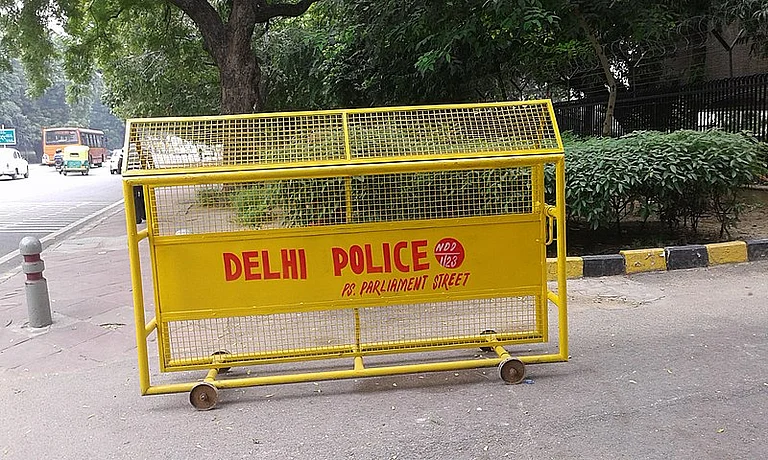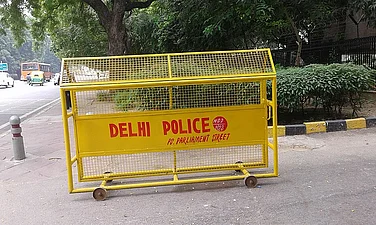But he is currently in the news not for his high-profile current assignmentas the director of the International Film Festival of India (IFFI) but for a10-page report submitted by him, which is now suddenly in the eye of a storm.Hisreport, based on various press reports so far, allegedly talks about "organised rigging" by "a particular political party" during the 2004 Lok Sabha polls in West Bengal. Andit has predictably led to demands by the opposition that it be made public.
Now, it doesn't really require one to be a Sherlock Holmes to figure outthat the alleged reference clearly is to the CPM-led Left Front. But so far, despite allthe opposition demands, including a PIL, the report has not been made public. And the reasons are not too difficult to fathom. As the report makes seriouscharges on free and fair elections in West Bengal, the only state in the country where the rulingalliance, the Left Front, has been winning elections for over 25 years.
Among the charges of organised rigging, the following are prominent, though theywould not be new to anyone who has closely followed the elections in WestBengal:
Big Stink: A "strong scent" is put by a loyal voter on the party’s key in the electronic voting machine when he goes to cast his vote.Everyone who votes thereafter and chooses the same key has the "scent" transferred totheir figure in addition to the indelible ink thereby enabling it to be trackedas to who voted for whom.
Slow Down Voting: A particular political party "traditionally jams the booths" to"discourage" genuine unattached voters from voting. In opposition strongholds, the voting process is "slowed down" by deliberately planting voters in the line whose records are suspect. This is done to hold up the queue and bring down the voting percentage. Another disruptivemethod is to strategically place those persons in the queue who are "challenged voters"(that is those who either don’t have their names on the electoral list or the correct identity proof) at regular intervals.
Fudging of Electoral Rolls: According to Ammanulah's findings, apre-determined number of genuine voters are assigned to be deleted to localparty workers. In case of these being challenged, some of the names are allowedto be restored, but since not everyone bothers, a whole lot are prevented fromcasting their votes. Since the state’s electoral rolls are not accessible to public and sufferfrom "padding and manipulation" - and in the absence of access,"deletions" and "revisions" cannot be checked.
Partymen on polling duty: The report talks about unionisation of the non-IPS police force,and goes on to say that at a rough estimate, upto 90% of the unions in West Bengalare affiliated, once again, to "a particular political party" andcautions against using them or primary and secondary school teachers from WestBengal for electoral duty. The system of patronage perfected by the Left Fronthas been such that only party workers are allowed state government jobs and thevery system of fairness demands that such people should not be on election duty.The report also cautions that Home Guards not in "active service for five years, should not be called for electionduty" as they too are involved with party work.
Unsecret Ballots: The report categorically states that the EC should"look at all the booths in the whole of the state" and ensure that"polling compartments" are put "away from windows" so as toensure that a voter's choice is not visible from outside.
It would seem that the ElectionCommission's Special Observer came back with a grim picture of the extent andpervasiveness of what has always been murmured as "scientific rigging"by the Left Front and his recommendations are therefore all the more noteworthy,most of which were also in evidence in Bihar elections. His report is clear thatinstead of local and state law enforcement agencies, central paramilitary forcesshould be posted in every polling booth and
intimidation of the polling agents of all major political parties should beprevented by ensuring that all of them are present inside the booth which shouldbe monitored by superior offices. The report also suggests that the posted EC officials should have mobile phones,the numbers of which should be made public so that they can be contacted bythose with complaints.
Predictably, the Left Front has attempted to shrug off the charges andallegations while the opposition, and most notably, Mamta Bannerjee, has arguesdconvincingly, " When the Right to Information Act came into force, the people have the right to know what was there in Amanullah's report,excerpts of which were published in a few newspapers. But we would like have the full report published by the EC''
Clearly, publishing of the report should be a first step but what is evenmore important is to ensure that the recommendations are implemented. Frankly,there is no reason for the Left Front to feel upset by these demands, for itwould be in their own interest if these steps are taken and the elections arenot only fair but are also perceived to be so.
The EC therefore has its job cut out. Its recent direction to the WBgovernment to transfer administrative and police officers serving for three years or more in the samedistrict, as against four years or more earlier, has been seen as too little andtoo ineffective. Saugata Roy, also a Trinamul MLA argues that any government officer who has served in a district during2004 Lok Sabha elections should not be allowed to handle the coming assemblypoll. But how would it help if the party faithful are moved from one place toanother? There are logistical and administrative issues involved for sure, butsurely with the experiences of the J&K and Bihar elections, much is expectedof the EC. If nothing else, for its own credibility, the Left Front itselfshould not only push for the release of the so-called Amanullah report but alsowelcome the suggestions therein.





















